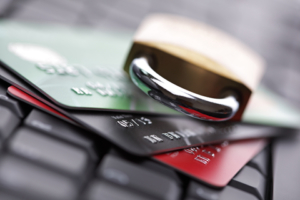20 Security Tips For Overseas Travelers With Credit Cards
Thinking of bringing a credit card with you on your travels? You can end up in a jam: You just treated your extended family to fine dining in France. Time to pay; your credit card is declined.
 If you try to make a purchase overseas, your credit card company might think it’s fraudulent, since it would appear anomalous, relative to your usual, U.S. purchases.
If you try to make a purchase overseas, your credit card company might think it’s fraudulent, since it would appear anomalous, relative to your usual, U.S. purchases.
So before you leave for your trip:
- Back up credit card data. It’s always important to have a backup of your card data, both online and in print. Photocopy each card and carry with you or store in your luggage. The Carbonite mobile app lets you access your backed-up data from anywhere in the world.
- Review your auto drafts and consider these when traveling to avoid maxing out the card.
- All your cards should be signed.
- Get a “data plan” and make sure your credit card company’s e-mail and phone numbers actually work.
- See if your company will issue you a chip-n-pin card, since this technology is widespread in foreign countries.
- Memorize the PIN and make sure it’s enabled for foreign ATM withdrawals.
- Install the credit card company’s mobile application so that you can be alerted to any suspicious issues.
- Gift cards and debit cards should be authorized for international use.
- Set your phone up for international use.
- Activate the feature in your card account that alerts you every time the card is used.
- Alert the credit card company when you’ll be overseas so they can monitor your purchases.
- Store the company’s 800 and non-800 numbers in your phone.
- Also make sure you have their e-mail address.
- The card(s) numbers should be documented in hardcopy.
- Find out if the card has a foreign transaction fee.
- Know the to-be-visited country’s phone dialing patterns.
While on your trip:
- Never give anybody your card for a purchase unless you can see everything they’re doing.
- At ATMs, carefully punch in the keypad numbers; you may not get too many chances to get the PIN correct.
- Save all receipts and inspect them. Use your computer or phone and secure Wi-Fi to monitor your account online. This can be done with Hotspot Shield, which will encrypt all transmissions.
Know that your card company will never request highly personal information such as your Social Security number. If anyone contacts you with such requests, it’s a scam.
Robert Siciliano is an expert in personal privacy, security and identity theft. Learn more about Carbonite Personal plans. See him discussing identity theft prevention. Disclosures.


























